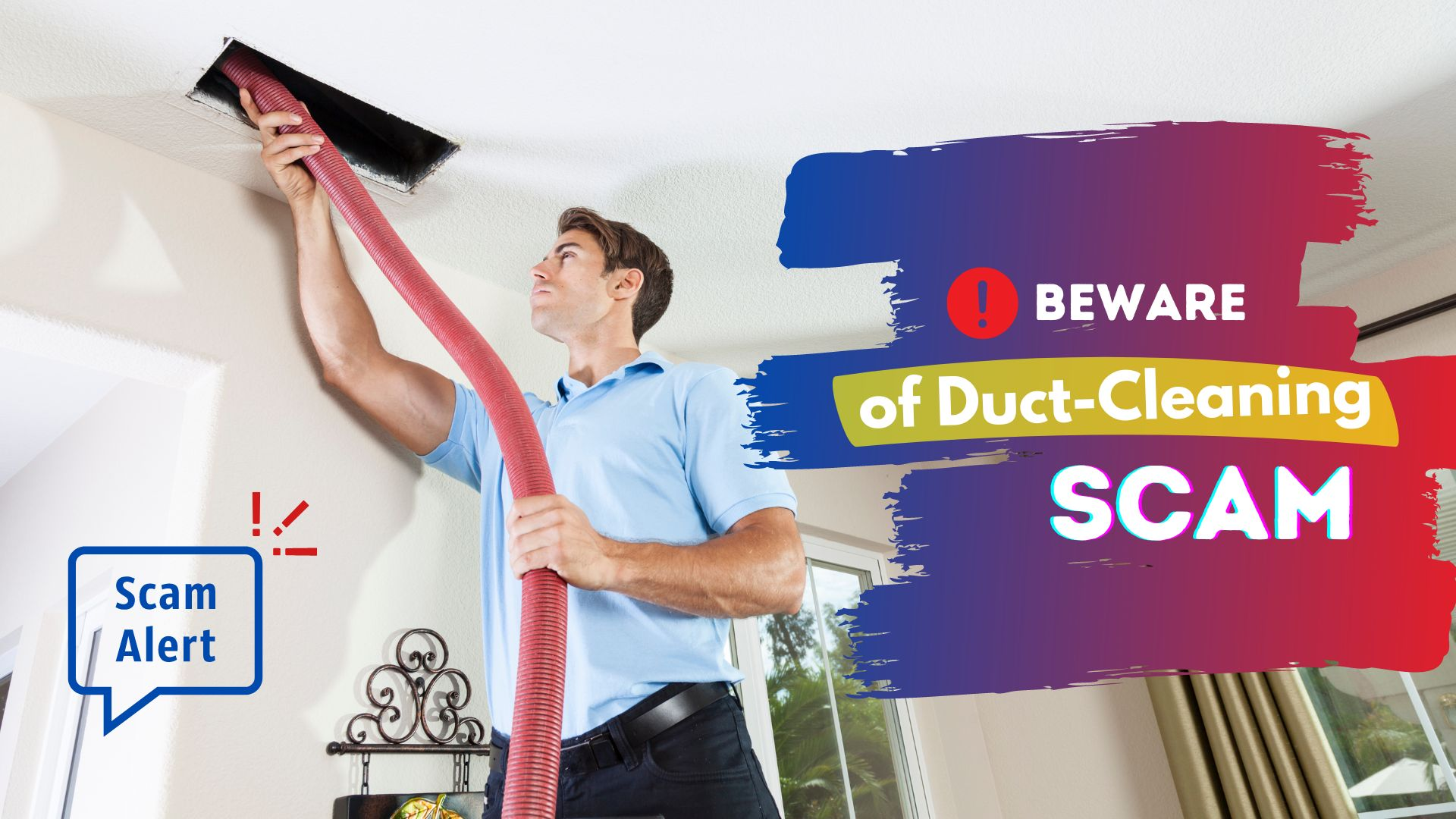Is duct cleaning necessary for air quality? This question echoes through homes in Coachella Valley as residents grapple with the invisible enemy of indoor air pollution. It’s not just about dust bunnies; it’s a concern that could impact your health and wallet.
Imagine peering into your home’s lungs – the network of air ducts hidden behind drywall and beneath floors, breathing life into every room. Now consider this: what if they’re not functioning at their best?
You’ll discover when it’s time to call in the pros for a thorough clean-up and when you might be better off leaving things be. By unraveling myths, we’ll clear the fog around claims that may not always hold water.
Experience Year-Round Comfort with Anthem’s Comfort Club!
Are you looking to ensure your home’s HVAC system runs smoothly year-round without breaking the bank? Look no further! Join Anthem’s exclusive Comfort Club today for just $14.95 a month!
Table Of Contents:
- The Truth About Air Duct Cleaning and Indoor Air Quality
- Potential Risks of Unnecessary Duct Cleaning
- How Dust and Debris Affect Your Air Ducts
- Selecting the Right Duct Cleaning Service for Your Home
- Conclusion
The Truth About Air Duct Cleaning and Indoor Air Quality
Think your home’s air is clean? The reality might blow you away. It turns out, the very ducts meant to carry fresh air can become highways for dust and allergens. So let’s talk straight – when does it make sense to get those ducts checked out?
When is Air Duct Cleaning Truly Necessary?
Certain circumstances call for a good scrubbing of your home’s respiratory system – the HVAC. If someone in your household battles allergies or unexplained symptoms emerge, it could be a signal that your indoor living space needs some TLC via air duct cleaning. Visible mold growth inside hard surfaces like sheet metal or if substantial debris blocks airflow are clear indicators.
Mold isn’t just an ugly spot on your wall; it can taint every breath you take indoors. And since we spend around 90% of our time inside, according to studies by the Environmental Protection Agency (EPA), ensuring quality indoor air becomes not just about comfort but health too.
Debunking Myths Around Duct Cleaning and Air Quality
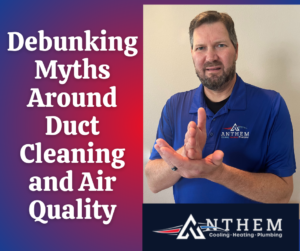
A popular claim floats around: “Cleaner ducts equal better health.” But this equation isn’t always accurate. Studies conclusively demonstrate that dirty air systems don’t automatically mean polluted indoor air nor do sparkling clean ones guarantee improved well-being.
If no one in your Coachella Valley pad suffers from chronic illnesses or allergy-like symptoms, and if a peek into the return air vents shows nothing alarming, then routine cleaning may be inconsequential – at least from an EPA standpoint.
EPA’s Stance on Routine Duct Cleaning
The big guns at environmental protection weigh in with some common-sense advice: Don’t fix what ain’t broke. They’ve got data backing up their view that unless there’s visible dirt buildup or known contaminants present, routine residential HVAC system cleaning might not affect your day-to-day life much at all.
Potential Risks of Unnecessary Duct Cleaning
The Harmful Effects of Inexperienced Duct Cleaners
In the realm of HVAC maintenance, duct cleaning plays a crucial role in ensuring indoor air quality and system efficiency. However, the task of cleaning ducts should be entrusted to experienced professionals. Hiring inexperienced duct cleaners can lead to a range of harmful effects, compromising both the health of occupants and the performance of the HVAC system.
Incomplete Cleaning: Inexperienced duct cleaners may lack the necessary knowledge and skills to thoroughly clean ductwork. Incomplete cleaning leaves behind accumulated dust, debris, and contaminants, diminishing the overall effectiveness of the HVAC system. This can result in reduced airflow, decreased energy efficiency, and increased strain on the equipment.
Cross-Contamination: Improper cleaning techniques can lead to cross-contamination within the duct system. Inexperienced cleaners may inadvertently spread pollutants from one area to another, causing indoor air quality issues. This can be particularly concerning for individuals with respiratory conditions or allergies, as they may experience heightened discomfort due to exposure to contaminants.
Damage to Ductwork: Duct cleaning involves the use of specialized equipment, and inexperienced individuals may mishandle these tools, leading to damage to the ductwork. Cracked or poorly sealed ducts can contribute to energy losses, as conditioned air escapes into unconditioned spaces, leading to increased energy bills and reduced system efficiency.
Health Risks: Inadequate cleaning practices may release harmful substances into the air, posing health risks to occupants. Mold, bacteria, and allergens present in the duct system can be disturbed during cleaning, exacerbating respiratory issues and allergies. Experienced professionals are equipped to handle these contaminants safely, minimizing the risk of adverse health effects.
Wasted Resources: Hiring inexperienced duct cleaners may result in wasted time and resources. The incomplete or substandard cleaning provided by inexperienced individuals may necessitate more frequent cleanings, leading to additional costs for homeowners or businesses.
The importance of hiring experienced professionals for duct cleaning cannot be overstated. Choosing reputable and skilled technicians ensures a comprehensive cleaning process that enhances indoor air quality, prolongs the life of the HVAC system, and promotes a healthier and more comfortable living or working environment.
Key Takeaway:
Got allergies or mystery sniffles? Your air ducts might be the culprits. Check for mold and blockages to see if you need a clean sweep for healthier breathing at home.
Busting myths: Cleaner ducts don’t always mean cleaner air, so unless your place has some dirty vents or health issues in the mix, you might not need that duct cleaning after all.
EPA says chill on the routine scrubbing of HVAC systems unless visible gunk or bad stuff is floating around in your air.
Think twice before hiring inexperienced cleaners; they could turn a simple dust-up into an expensive mess.
How Dust and Debris Affect Your Air Ducts
Dust and debris don’t just collect on your coffee table – they’re also party crashers in your HVAC system, hogging the space meant for clean air. Over time, this uninvited accumulation can bog down your system’s efficiency like a slow computer with too many open tabs.
The Lifecycle of Dust in Your HVAC System
You might not see it happen, but every day dust sneaks into your home like a ninja. It waltzes through windows, doors, and even hitchhikes on clothes or pets. Once inside, it takes a tour of your living space before finally settling down in the ductwork that snakes through walls and under floors. This isn’t just any old dust either; we’re talking about an ensemble cast featuring bits of skin cells, pet dander, textile fibers, pollen, and whatever else floats around looking for trouble.
Now imagine this motley crew setting up camp along cooling coils or parking itself lazily on drain pans. Not exactly what you had in mind for quality indoor air? And let’s not forget about those return air ducts – think of them as the express lane back into circulation throughout your house.
Recognizing Signs That Your Ducts Need Attention
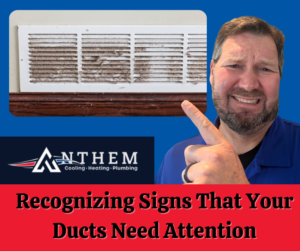
Sometimes signs need no introduction: visible mold growth peeks out from duct surfaces saying “Hello.” when all you wanted was to crank up the AC on a hot day. If spotting fuzzy intruders doesn’t make you pick up the phone to call an air duct cleaning service right away…well…it should.
But there are less obvious cues whispering “Clean me.” For instance:
- Your energy bills may creep higher without explanation because dirty air ducts force heating systems to work overtime;
- Allergy symptoms could be throwing more punches than usual due to poor indoor air pollution control;
- A mysterious mustiness wafts through rooms hinting at possible hidden mold growth somewhere within metal conduits;
If these hints become frequent guests at your dinner parties—or worse—permanent residents under your roof, then giving those dusty tunnels a good scrub-down goes from ‘good idea’ to ‘urgent agenda item.’
So, just like you’d check the weather before pulling on those rain boots, make sure to assess your situation carefully. If you spot a significant issue—think major dust buildup or signs of rodents—it’s time to take action. Tackle problems when they’re small; don’t wait for them to become bigger headaches.
Key Takeaway:
Dust doesn’t just settle on surfaces; it invades your HVAC system, affecting air quality and efficiency. Recognize the signs—like higher energy bills or musty smells—and don’t hesitate to clean those ducts for a breath of fresh air.
Selecting the Right Duct Cleaning Service for Your Home
Finding a reliable duct cleaning service can be like looking for a needle in a haystack. But worry not. We’ve got some pro tips to help you pick the best team to take care of your HVAC system, ensuring clean air and peace of mind.
What to Look for in a Professional Duct Cleaner
Not all heroes wear capes—some come armed with specialized tools ready to battle dust and debris. When choosing a professional duct cleaner, experience is key. You want someone who’s seen it all: from sneaky mold growth hiding in dark corners to an army of dust bunnies barricading your vents.
A qualified tech should have more than just good looks; they need credentials that speak louder than their power drills. Check if they’re rocking certifications that align with industry standards—a sure sign they know their way around your sheet metal labyrinth better than anyone else.
The right company will offer transparency faster than you can ask “what’s lurking in my air ducts?” They’ll gladly show proof of insurance because let’s face it, accidents happen but paying for them shouldn’t be on you.
Questions to Ask Before Hiring a Duct Cleaning Company
Gearing up to make that call? Hold your horses. Make sure you’ve got these questions loaded and ready:
- “How do you inspect the dirt levels before starting?” A reputable company doesn’t just guess—they perform visual inspections or even snap photos showing what’s inside those return air pathways.
- “Can I get an estimate upfront?” Nobody likes surprise costs popping up like unwanted weeds. An honest provider gives clear estimates so your wallet isn’t left feeling lighter post-cleanup.
- “Do you use any chemicals, and if so, which ones?” Because breathing easy shouldn’t include inhaling mystery substances after getting those dirty air ducts spruced up.
If they pass this interrogation with flying colors—you might just have found ‘the one’. And remember, while proper care can save energy (and money.), sometimes love stories aren’t forever; EPA recommends reviewing needs on an as-needed basis instead of sticking strictly to the calendar. According to EPA guidelines, there are no strict schedules when it comes to down-to-earth home maintenance like this.
Tips: If cost savings sound sweeter than pumpkin pie during Thanksgiving dinner then keep an eye out for companies offering bundle deals—maybe getting those cooling coils checked at the same time could mean more bang (or cool breeze) for your buck.
Key Takeaway:
Find a duct cleaner with the right tools and experience to tackle every dust bunny. Look for certifications, upfront estimates, and no surprise chemicals. Remember: there’s no set schedule for cleaning, so review as needed.
Conclusion
The answer isn’t always a clear yes. You’ve seen when it’s essential and when you might just be stirring up trouble.
Clean ducts can mean better health; dirty ones can circulate more than just air. But remember, not all dust spells disaster.
Know the signs – from mold spots to spotty airflow – these are your cues to act. And if action calls, choose wisely; only seasoned pros should tackle your home’s hidden highways.
Duct cleaning has its place but it’s no magic bullet. It pays to be informed because clean air at home starts with knowing what truly matters.
Experience Year-Round Comfort with Anthem’s Comfort Club!
Are you looking to ensure your home’s HVAC system runs smoothly year-round without breaking the bank? Look no further! Join Anthem’s exclusive Comfort Club today for just $14.95 a month!
Membership perks include:
2) Bi-Annual Maintenance Visits: Spring AC tune-up & fall furnace check-up. No hassle scheduling – we’ll reach out when it’s time!
Exclusive Discounts: Enjoy 15% off AC & heater repairs, IAQ products, and duct cleanings.
Reduced Service Fee: Pay only $69 for service calls (normally $99).
Priority Scheduling: Guaranteed scheduling within 24 hours for club members.
Priority Service: On sweltering days, your unit becomes our top priority!
Extended Equipment Lifespan: Keep your HVAC system running longer.
Enhanced Energy Efficiency: Save on utility bills with optimized systems.
And more! Don’t miss out on these incredible benefits! Call Anthem at (855) 268-4369 or visit Anthem’s Website to sign up and schedule your estimate today!





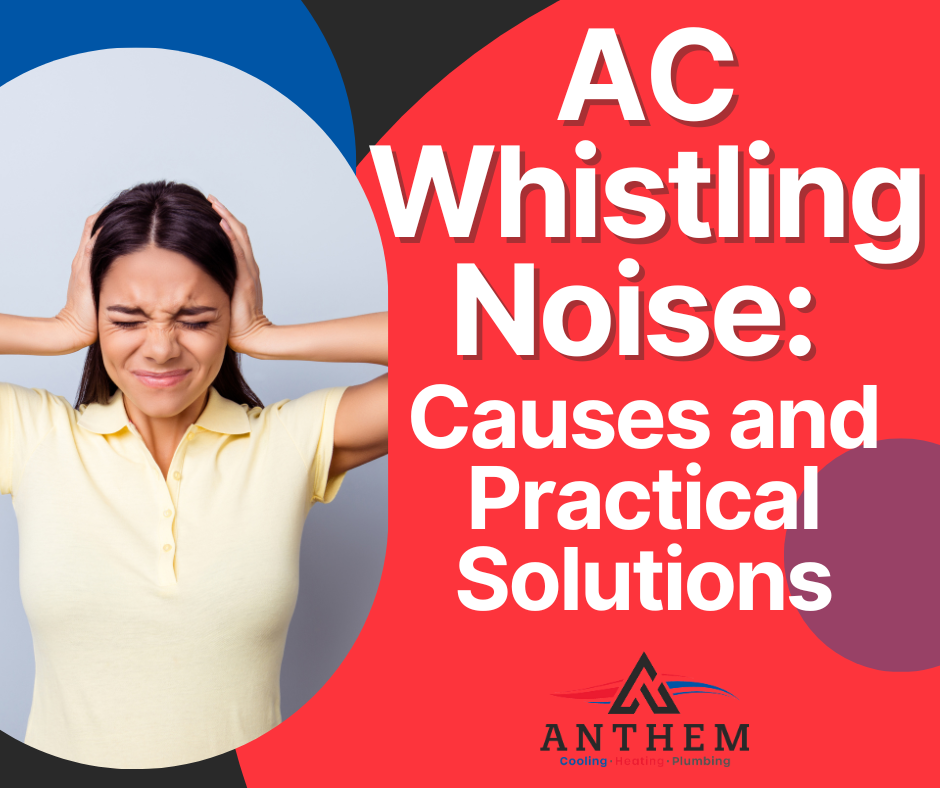

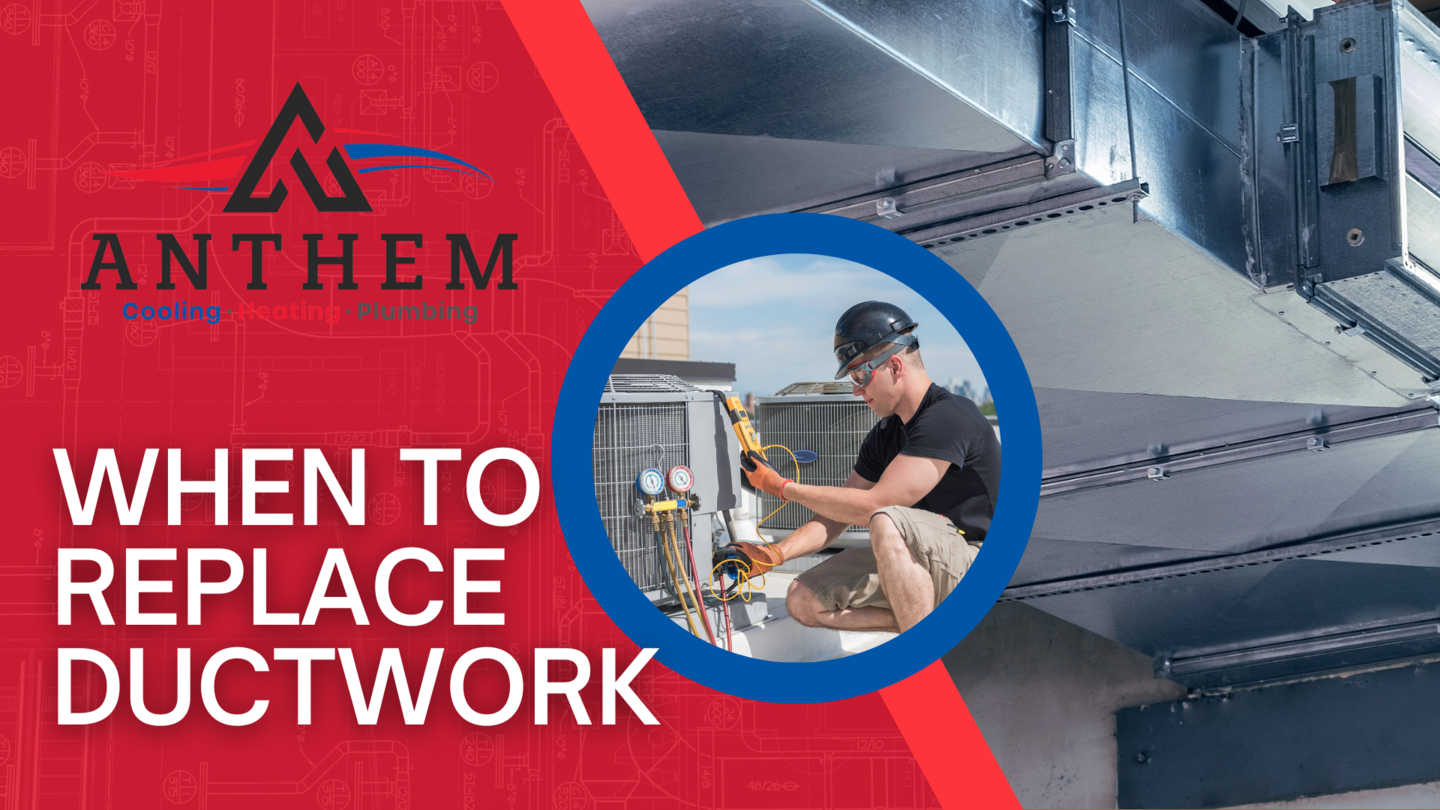
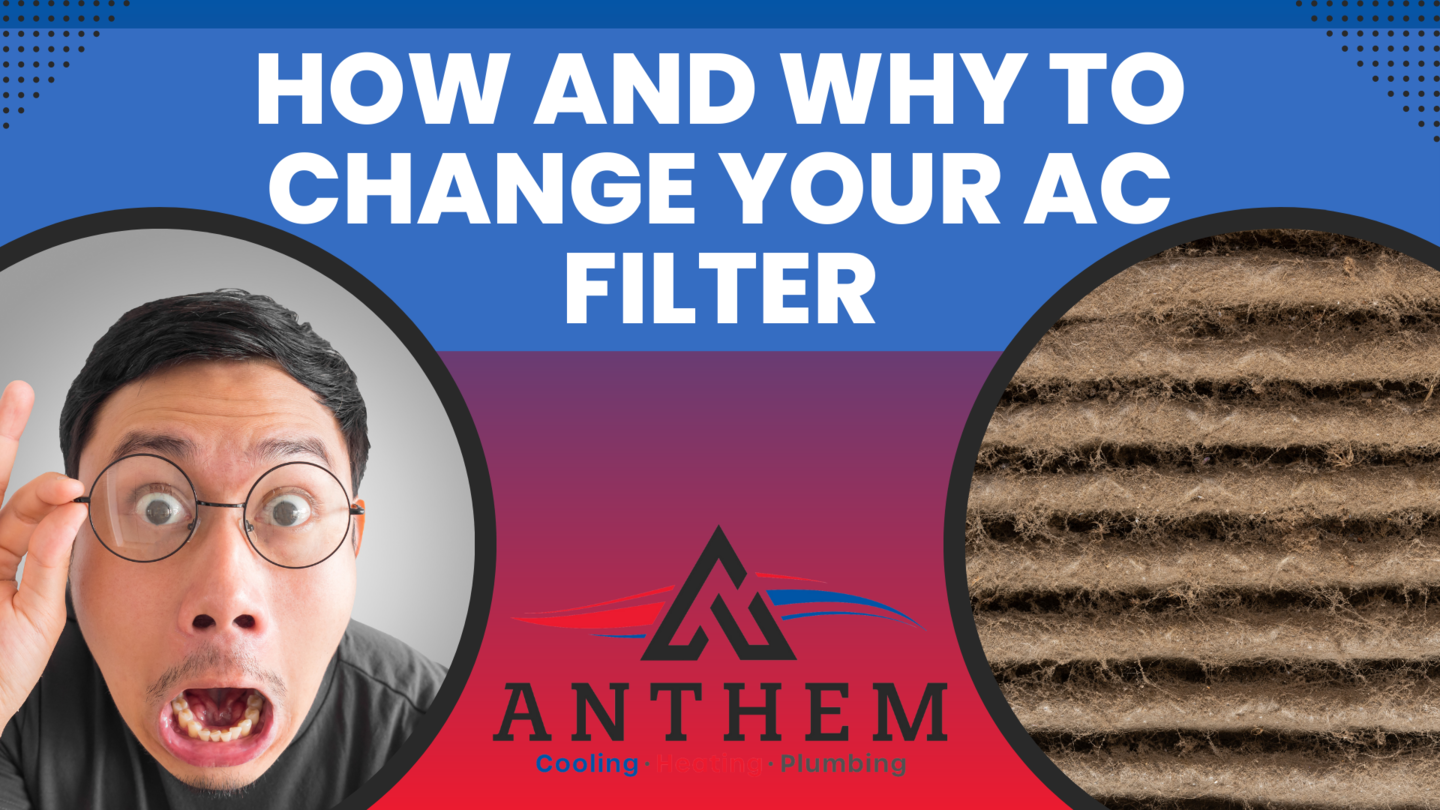







 Another important task is scheduling annual inspections and tune-ups. These services can help identify any issues with your system before they become major problems. An HVAC professional will inspect and test your system, checking for any signs of wear or damage, and making any necessary adjustments to ensure it’s running efficiently.
Another important task is scheduling annual inspections and tune-ups. These services can help identify any issues with your system before they become major problems. An HVAC professional will inspect and test your system, checking for any signs of wear or damage, and making any necessary adjustments to ensure it’s running efficiently.







